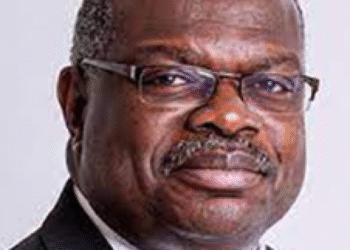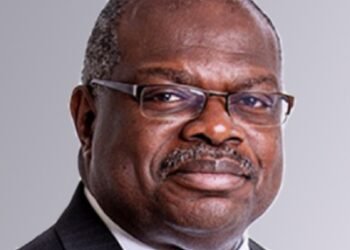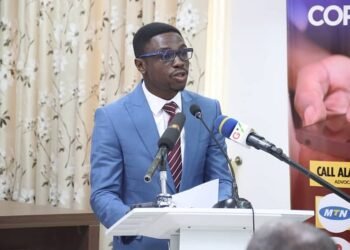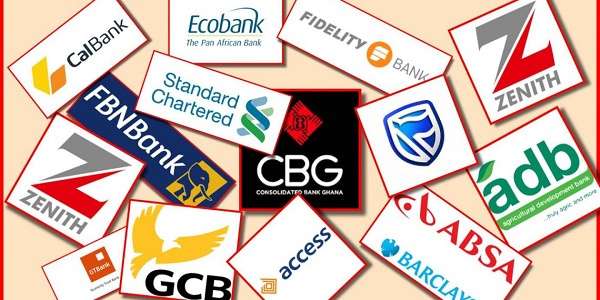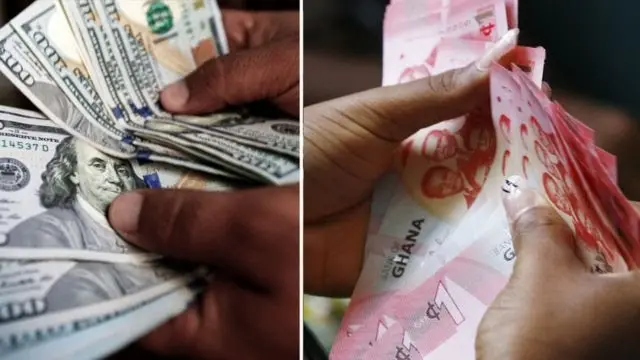The opposition New Patriotic Party (NPP) faces deepening internal divisions and declining voter confidence, according to the latest poll by Global InfoAnalytics.
The new data reveals that regardless of who leads the NPP into the 2028 general elections, the party’s chances against the National Democratic Congress (NDC) remain slim — with even loyal NPP voters showing signs of shifting allegiance to the governing party’s leading figures.
In the latest release, Executive Director of Global InfoAnalytics, Mussa Dankwah, noted that the NPP’s two most prominent potential flagbearers — former Vice President Dr. Mahamudu Bawumia and former Assin Central MP Kennedy Agyapong — both trail behind top NDC contenders, including Minister for Finance Dr. Cassiel Ato Forson, Education Minister Haruna Iddrisu, NDC National Chairman Johnson Asiedu Nketia, and Chief of Staff Julius Debrah.
“Generally, the polling data suggests that Ato Forson is likely to win more NPP voters against DMB than any other NDC candidate, as he obtains 11%, Haruna Iddrisu, 10%, Asiedu Nketia, 9%, and Julius Debrah, 8%”
Executive Director of Global InfoAnalytics, Mussa Dankwah
The poll shows that if Dr. Bawumia leads the NPP, almost 21% of Kennedy Agyapong supporters would vote for Ato Forson over him.
However, against Haruna Iddrisu, 17% of Kennedy supporters would vote for Haruna; against Asiedu Nketia, another 17% would switch; and 14% would choose Julius Debrah instead of Dr Bawumia.

The results highlight a significant risk of voter defection within the opposition’s base, suggesting that the party remains fractured nearly a year after losing the 2024 general election to President John Dramani Mahama and the NDC.
When tested against the same NDC figures, Kennedy Agyapong performs only marginally better at retaining the support of Dr Bawumia-aligned voters.
“If Kennedy is elected and he comes face-to-face with Ato Forson, 13% of NPP voters who preferred DMB will vote for Ato Forson, while if Kennedy runs against Haruna, 15% of DMB NPP voters will vote for Haruna”.
Executive Director of Global InfoAnalytics, Mussa Dankwah
In a Kennedy-versus-Asiedu Nketia matchup, only 9% of Dr Bawumia supporters said they would vote for Nketia, while in a Kennedy-versus-Julius Debrah scenario, just 7% would back Debrah.
NPP Comeback under Siege
Mussa Dankwah explained that although Kennedy Agyapong may be able to retain slightly more of Dr Bawumia’s supporters than the latter could of his, the party as a whole faces “a serious unity deficit that could hurt its comeback prospects in 2028.”
“The data suggests the potential challenges facing the NPP either way, and they must watch how they campaign in their primaries. Early warning data shows they could be severely divided in the general election — and that will not be what they need going into what could be another difficult election.”
Executive Director of Global InfoAnalytics, Mussa Dankwah
The poll underscores a troubling reality for the NPP, which has spent the past ten months in opposition attempting to rebuild public trust following the economic challenges and governance fatigue that contributed to its 2024 electoral defeat.
The lingering factional tension between supporters of Dr. Bawumia and Kennedy Agyapong, which dominated the NPP’s 2023 flagbearer contest, continues to erode party unity and voter enthusiasm.
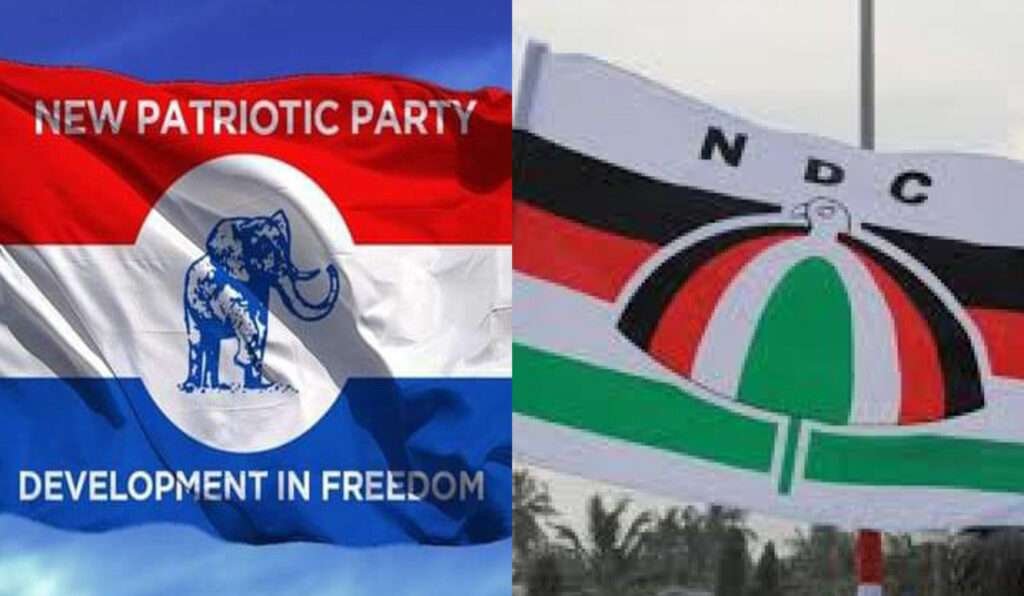
The data from Global InfoAnalytics serves as an early warning of a potential repeat of 2024’s internal disunity — a factor many within the NPP have admitted cost them dearly.
The poll also suggests that the NDC’s leading figures — especially Dr. Ato Forson — are gaining traction among swing voters and even a segment of traditional NPP supporters disillusioned by recent events.
Dr. Forson, who currently serves as Ghana’s Minister for Finance and has become one of the most shining performers of the Mahama administration’s fiscal reforms, appears to be consolidating national appeal.
His strong polling numbers against both Dr Bawumia and Kennedy Agyapong reflect growing confidence in his leadership and credibility on economic issues — an area that proved decisive in the 2024 election.
Meanwhile, Haruna Iddrisu, Asiedu Nketia, and Julius Debrah also polled strongly, with each recording notable cross-party appeal. This indicates a broader perception among voters that the NDC currently embodies stability, organization, and policy consistency — qualities that the NPP is still struggling to project.
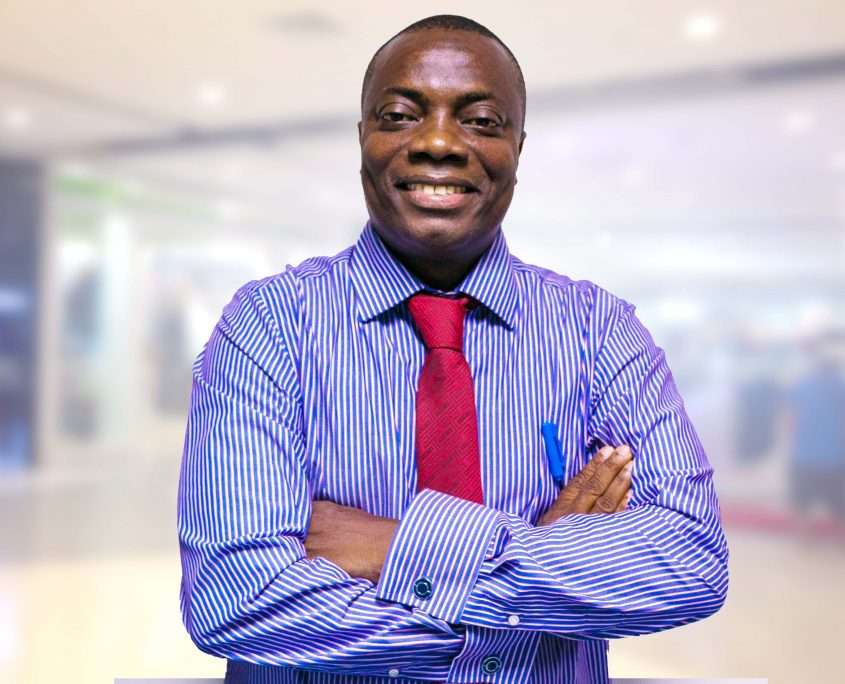
Global InfoAnalytics’ surveys have become an influential part of Ghana’s political analysis, especially in post-election periods, as they help gauge public sentiment and party realignment.
Mussa Dankwah emphasized that the findings should not be seen as a prediction of defeat but rather as a diagnostic tool to help the NPP identify and address its internal weaknesses early enough.
As Ghana edges closer to another high-stakes election cycle, the message from Global InfoAnalytics is unmistakable: the NPP’s challenge is no longer just about defeating the NDC — it is about rediscovering its unity, renewing its purpose, and convincing Ghanaians that it is ready to govern again.
READ ALSO: Ghana’s Rising Food Insecurity Demands Urgent Systemic Reform






